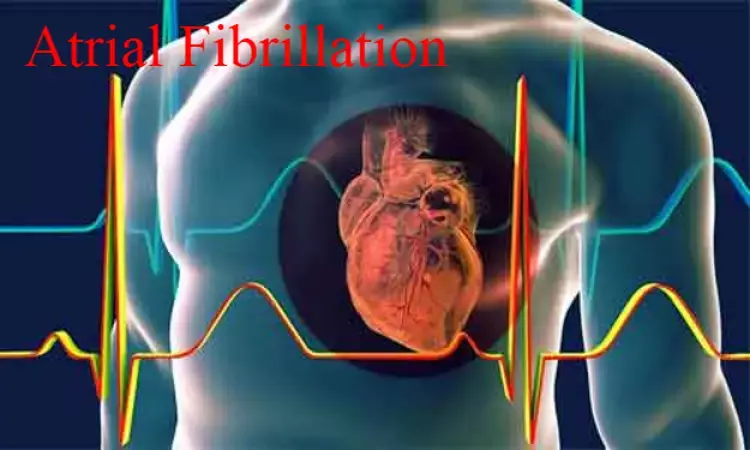- Home
- Medical news & Guidelines
- Anesthesiology
- Cardiology and CTVS
- Critical Care
- Dentistry
- Dermatology
- Diabetes and Endocrinology
- ENT
- Gastroenterology
- Medicine
- Nephrology
- Neurology
- Obstretics-Gynaecology
- Oncology
- Ophthalmology
- Orthopaedics
- Pediatrics-Neonatology
- Psychiatry
- Pulmonology
- Radiology
- Surgery
- Urology
- Laboratory Medicine
- Diet
- Nursing
- Paramedical
- Physiotherapy
- Health news
- Fact Check
- Bone Health Fact Check
- Brain Health Fact Check
- Cancer Related Fact Check
- Child Care Fact Check
- Dental and oral health fact check
- Diabetes and metabolic health fact check
- Diet and Nutrition Fact Check
- Eye and ENT Care Fact Check
- Fitness fact check
- Gut health fact check
- Heart health fact check
- Kidney health fact check
- Medical education fact check
- Men's health fact check
- Respiratory fact check
- Skin and hair care fact check
- Vaccine and Immunization fact check
- Women's health fact check
- AYUSH
- State News
- Andaman and Nicobar Islands
- Andhra Pradesh
- Arunachal Pradesh
- Assam
- Bihar
- Chandigarh
- Chattisgarh
- Dadra and Nagar Haveli
- Daman and Diu
- Delhi
- Goa
- Gujarat
- Haryana
- Himachal Pradesh
- Jammu & Kashmir
- Jharkhand
- Karnataka
- Kerala
- Ladakh
- Lakshadweep
- Madhya Pradesh
- Maharashtra
- Manipur
- Meghalaya
- Mizoram
- Nagaland
- Odisha
- Puducherry
- Punjab
- Rajasthan
- Sikkim
- Tamil Nadu
- Telangana
- Tripura
- Uttar Pradesh
- Uttrakhand
- West Bengal
- Medical Education
- Industry
Comprehensive therapy could extend lifespan of heart failure patients

According to an estimate over 64 million people worldwide have heart failure, and about half of them have heart failure with reduced ejection fraction (HFrEF). There have been many advancements in the treatment of HFrEF with several new drugs showing promising results in randomized, controlled clinical trials. However, uptake of new therapies to increase lifespan of such patients has been slow.
Researchers at Brigham and Women's Hospital have found that comprehensive therapy could extend lifespan of heart failure patients up to six years and eight years free from cardiovascular death or first hospital admission for HFrEF. The findings of the study have been published in The Lancet.
The conventional therapy of heart failure consists of angiotensin-converting enzyme (ACE) inhibitors or angiotensin receptor blockers (ARBs) and β blockers. Three drug classes (mineralocorticoid receptor antagonists [MRAs], angiotensin receptor–neprilysin inhibitors [ARNIs], and sodium/glucose cotransporter 2 [SGLT2] inhibitors) reduce mortality in patients with heart failure with reduced ejection fraction (HFrEF) beyond these groups of drugs.
"There's been some resistance to adopting comprehensive therapy for heart failure patients," said corresponding author Scott Solomon, MD, of the Brigham's Cardiovascular Division. "What we did here was to say, 'What might the benefit be over a patient's lifetime?' And the benefit we're seeing is pretty dramatic."
"Across a broad range of ages, these therapies, when implemented in combination, may meaningfully improve life expectancy and help patients remain out of the hospital," said lead author Muthiah Vaduganathan, MD, MPH, also of the Brigham's Cardiovascular Division.
To conduct their analysis, Solomon, Vaduganathan and colleagues leveraged data from three previously conducted randomized, clinical trials. Each trial evaluated a therapy for heart failure patients: mineralocorticoid receptor antagonists (MRA), angiotensin receptor-neprilysin inhibitors (ARNI), and sodium/glucose cotransporter (SGLT2) inhibitors. Drawing on the data from these trials, the team conducted an actuarial analysis to estimate the lifetime benefit of taking all three drugs in addition to a conventional regimen.
Their analysis found that over the course of a lifetime of use, assuming consistent treatment benefits, the comprehensive regimen could add up to eight years of survival free from cardiovascular events and hospitalization due to heart failure. While younger patients with HFrEF would stand to benefit the most, the researchers reported gains in life expectancy for all age groups analyzed.
Offering readily understandable metrics for clinicians and patients to be able to refer to when discussing treatment options was important to the authors, especially amid the COVID-19 pandemic.
"Patients with heart failure are especially vulnerable during COVID-19 and ensuring effective preventive care for this high-risk segment of the population is a top priority in the next phase of the pandemic planning," said Vaduganathan.
The authors note that their analysis has certain limitations, including assumptions about the therapy, adherence, and that benefits would continue to accrue over time. In addition, the analysis does not examine the costs of heart failure drugs or the potential side effects—such as kidney toxicity—of taking these drugs in combination.
More information: Vaduganathan M et al. "Estimating lifetime benefits of comprehensive disease-modifying pharmacological therapies in patients with heart failure with reduced ejection fraction: a comparative analysis of three randomised controlled trials" The Lancet
Dr Kamal Kant Kohli-MBBS, DTCD- a chest specialist with more than 30 years of practice and a flair for writing clinical articles, Dr Kamal Kant Kohli joined Medical Dialogues as a Chief Editor of Medical News. Besides writing articles, as an editor, he proofreads and verifies all the medical content published on Medical Dialogues including those coming from journals, studies,medical conferences,guidelines etc. Email: drkohli@medicaldialogues.in. Contact no. 011-43720751


